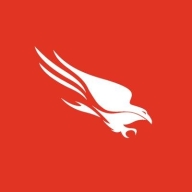


Microsoft Defender for Cloud and CrowdStrike Falcon Cloud Security are leading competitors within the cybersecurity market. Microsoft Defender for Cloud holds an advantage due to its comprehensive multi-cloud integration capabilities, providing robust security and visibility for compliance and operations management.
Features: Microsoft Defender for Cloud excels with its seamless integration into the Azure ecosystem, offering advanced visibility, AI and ML-based alerts, compliance policy management, and automated responses through Logic Apps. CrowdStrike Falcon focuses on endpoint protection, utilizing a lightweight cloud-based agent that delivers real-time threat prevention and behavioral analysis through ML and AI, benefiting users with signatureless technology that minimizes resource consumption.
Room for Improvement: Microsoft Defender for Cloud can enhance its user experience by simplifying compliance management and improving agent features. Consistency across the platform along with clearer automation and secure score calculations are needed. CrowdStrike Falcon should refine its user support portal for easier navigation and real-time interaction, and potentially reconsider its pricing structure alongside expanding forensic capabilities.
Ease of Deployment and Customer Service: Microsoft Defender for Cloud shows a straightforward deployment process, especially in Azure environments, although its customer service reviews vary in responsiveness. CrowdStrike Falcon offers swift deployment for cloud and on-premises setups, boasting an intuitive configuration, although support response times can be inconsistent depending on the issue.
Pricing and ROI: Microsoft Defender for Cloud is perceived as costly, with a complex pricing strategy and added expenses for full security coverage; however, users note a favorable ROI due to its integration and security features. CrowdStrike Falcon's price is also high, yet the value is seen in its efficient management and formidable security offerings. ROI for both solutions varies based on implementation and business requirements.



SentinelOne Singularity Cloud Security protects cloud workloads, offering advanced threat detection and automated response. It integrates seamlessly with cloud environments and secures containerized applications and virtual machines against vulnerabilities.
SentinelOne Singularity Cloud Security is renowned for its efficiency in mitigating threats in real-time. The platform integrates effortlessly with existing cloud environments, ensuring robust cloud security management with minimal manual intervention. Securing containerized applications and virtual machines, it excels in threat intelligence and endpoint protection. However, improvements are needed in performance during high workload periods, and more integrations with third-party tools and better documentation would be beneficial. Users often find the installation process complex, support response times slow, and the dashboard's navigation unintuitive.
What are the key features of SentinelOne Singularity Cloud Security?In specific industries, SentinelOne Singularity Cloud Security is implemented to safeguard critical data and infrastructure. Organizations in finance, healthcare, and technology depend on its real-time threat detection and automated response to protect sensitive information. Its ability to secure containerized applications and virtual machines is particularly valuable in dynamic environments where rapid scaling is necessary.
CrowdStrike Falcon Cloud Security is a platform of cloud security solutions aimed at protecting organizations from breaches while simplifying cloud security management. The unified platform combines several cloud security functionalities for comprehensive protection. Built on the CrowdStrike Falcon Platform, it leverages the powerful agent and technology used in CrowdStrike's renowned endpoint protection solutions, extending its capabilities seamlessly to cloud environments.
CrowdStrike Falcon Cloud Security is designed to be a shield for the cloud infrastructure. One of its key strengths is its ability to monitor cloud workloads for potential breaches and attacks. It doesn't matter if you're running virtual machines, containers, or a combination of both across different cloud providers – Falcon Cloud Security offers visibility and protection. Additionally, it works tirelessly to pinpoint misconfigurations or vulnerabilities in your cloud setup, proactively stopping issues before they become full-blown security incidents. Compliance becomes easier too, as it can check if your deployments meet the requirements of various industry standards and regulations.
If you heavily utilize containers and Kubernetes, Falcon Cloud Security has you covered. It delves deep into container images and running containers to spot weaknesses and potential threats, helping you secure your containerized applications from the moment they're developed to when they're up and running. Finally, it tackles the often messy world of permissions in the cloud. Falcon Cloud Security analyzes identities and their attached permissions, ensuring that the principle of least privilege is followed and sensitive data isn't exposed due to overly broad access rights.
In essence, CrowdStrike Falcon Cloud Security aims to simplify the complexities of cloud security by consolidating tools, providing a centralized view of your risks and threats, and delivering advanced protection that blends seamlessly with your development processes.
Based on the interviews we conducted with CrowdStrike Falcon Cloud Security users, overall, the sentiment is positive. Users praise the solution's efficacy in detecting and preventing threats, its ease of use, scalability, stability, and integration with existing systems. There were also mentions of areas for improvement, such as the pricing, the user interface, and customer support.
Microsoft Defender for Cloud is a comprehensive security solution that provides advanced threat protection for cloud workloads. It offers real-time visibility into the security posture of cloud environments, enabling organizations to quickly identify and respond to potential threats. With its advanced machine learning capabilities, Microsoft Defender for Cloud can detect and block sophisticated attacks, including zero-day exploits and fileless malware.
The solution also provides automated remediation capabilities, allowing security teams to quickly and easily respond to security incidents. With Microsoft Defender for Cloud, organizations can ensure the security and compliance of their cloud workloads, while reducing the burden on their security teams.
We monitor all Cloud Workload Protection Platforms (CWPP) reviews to prevent fraudulent reviews and keep review quality high. We do not post reviews by company employees or direct competitors. We validate each review for authenticity via cross-reference with LinkedIn, and personal follow-up with the reviewer when necessary.